- Home
- cryptocurrency
- news
- Warren Buffett has made predictions about crypto, table tennis, and even his own death. Here are 12 forecasts and how they've turned out.
Warren Buffett has made predictions about crypto, table tennis, and even his own death. Here are 12 forecasts and how they've turned out.
Theron Mohamed

- Warren Buffett avoids making predictions as he believes the future is too uncertain.
- Yet he has given his best guesses about cryptocurrency, table tennis, and the timing of his death.
Warren Buffett knows better than to make predictions.
"We have no idea — and never have had — whether the market is going to go up, down, or sideways in the near- or intermediate-term future," the famed investor wrote in his 1986 letter to Berkshire Hathaway shareholders.
Yet the so-called Oracle of Omaha couldn't resist making a few guesses about the future over the years. We've gathered 12 of his most intriguing predictions and assessed their accuracy below.
1. Cryptocurrencies
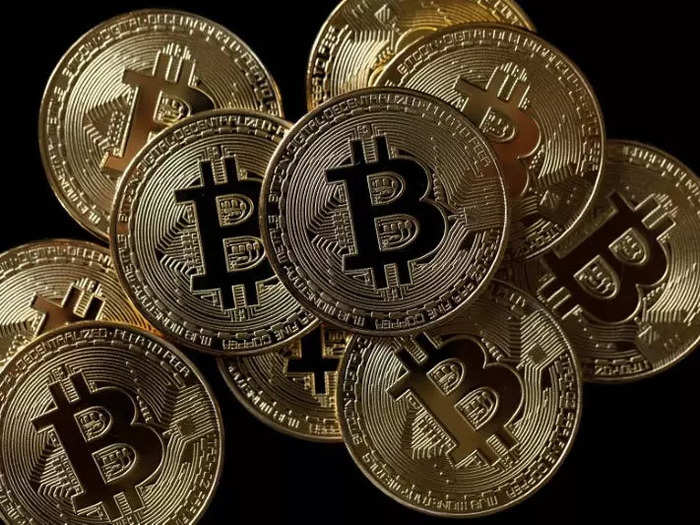
Prediction:
"In terms of cryptocurrencies generally, I can say almost with certainty that they will come to a bad ending," Buffett told CNBC in January 2018. "Now, when it happens or how or anything else, I don't know."
He added: "If I could buy a five-year put on every one of the cryptocurrencies, I'd be glad to do it, but I would never short a dime's worth."
Outcome:
If Buffett had placed a five-year bet against bitcoin at the time of his interview, it wouldn't be too far from paying off. Bitcoin soared from around $14,000 in January 2018 to north of $60,000 in November 2021, but has plunged since then to around $17,000.
2. Flat-earthers

Prediction:
"Ships will sail around the world, but the Flat Earth Society will flourish," Buffett said in a speech at Columbia's business school in May 1984.
Outcome:
Buffett may have been making a point about stubborn denialism in financial markets, but his prediction about so-called flat-earthers was correct — they've enjoyed a resurgence in recent years.
3. Berkshire Hathaway
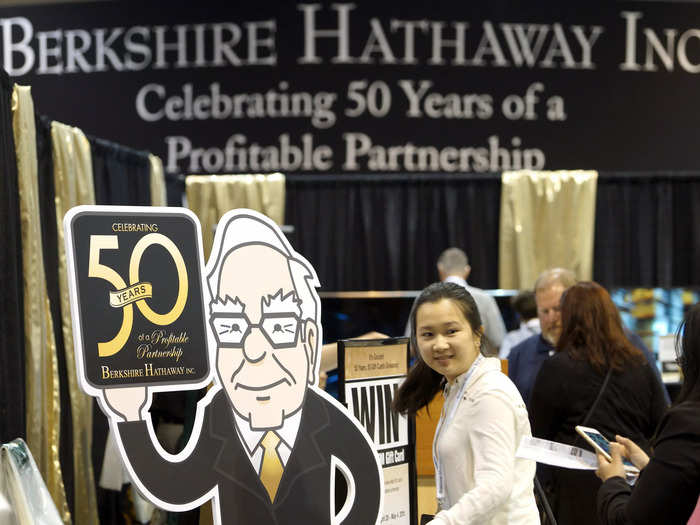
Prediction:
"It is fitting that the visit of Halley's Comet coincided with this percentage gain: neither will be seen again in my lifetime," Buffett told Berkshire shareholders in 1985 after the conglomerate grew its net worth by 48.2%.
He also predicted that the 23.2% compounded annual growth in the company's per-share book value that year was "another percentage that will not be repeated."
Outcome:
It took nearly 15 years for Buffett to prove himself wrong on the first count. Berkshire's net worth jumped by 48.3% in 1998, though that was largely because the company issued shares for acquisitions.
"Normally, a gain of 48.3% would call for handsprings — but not this year," he told investors.
Buffett's second prediction was way off the mark. Berkshire's per-share book value rose by 23.3% in 1986. It has also grown by at least 23.2% in more than 10 other years since 1985.
4. Sears
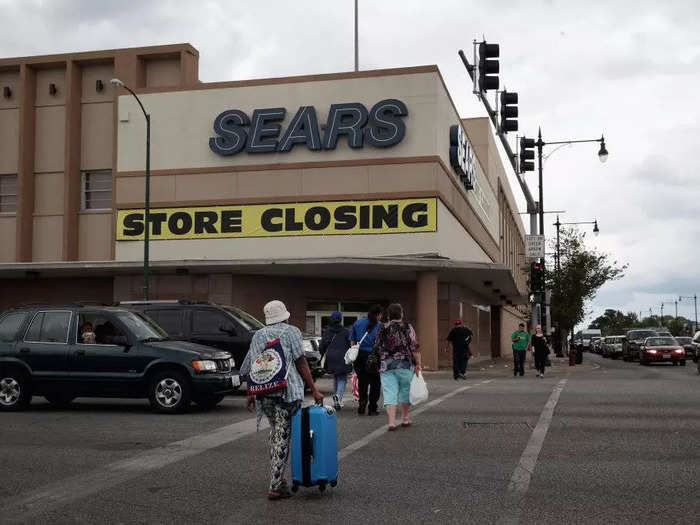
Prediction:
Buffett told students at the University of Kansas in May 2005 that Sears Chairman Eddie Lampert would struggle to revitalize the department-store chain. He warned that rivals such as Walmart and Costco could undercut Sears, which had just been acquired by Kmart.
"Eddie is a very smart guy, but putting Kmart and Sears together is a tough hand," Buffett said. "Turning around a retailer that has been slipping for a long time would be very difficult."
Outcome:
Buffett was right on the money. Sears filed for bankruptcy protection in October 2019, and while Lampert swooped in to buy the retailer and saved it from liquidation, it continues to struggle.
5. ABC, Geico, and The Washington Post

Prediction:
"We expect to keep permanently our three primary holdings, Capital Cities/ABC, Inc., Geico Corporation, and The Washington Post," Buffett told Berkshire shareholders in his 1986 letter.
"Even if these securities were to appear significantly overpriced, we would not anticipate selling them, just as we would not sell See's or Buffalo Evening News if someone were to offer us a price far above what we believe those businesses are worth," he added.
Outcome:
Despite his best intentions, Buffett can't resist a great deal. Berkshire sold its stake in Capital Cities/ABC to The Walt Disney Company in 1996 in a cash-and-stock deal worth $2.5 billion.
He also flogged his company's 28% stake in The Post to Graham Holdings in a transaction worth more than $1.1 billion in 2014. The Graham family sold The Post to Amazon CEO Jeff Bezos in a $250 million deal in 2013.
While Berkshire still owns Geico and See's Candies, it sold The Buffalo News and its other newspapers for $140 million to publisher Lee Enterprises in 2020.
6. Freddie Mac
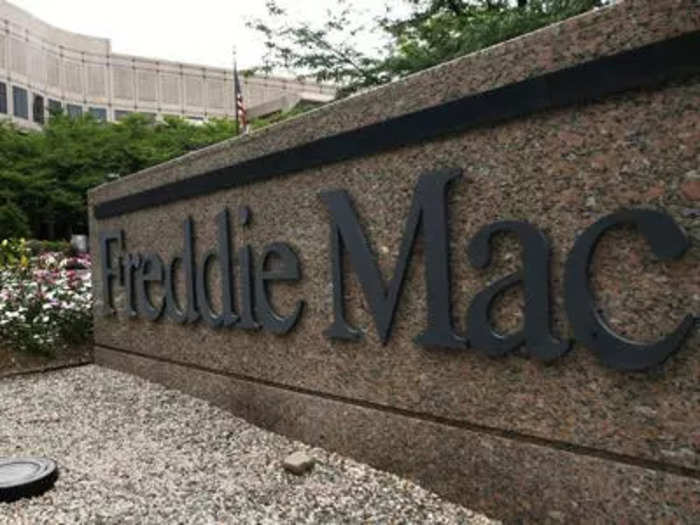
Prediction:
"In 1988 we made major purchases of Federal Home Loan Mortgage Pfd. ('Freddie Mac')," Buffett told Berkshire shareholders in his letter that year.
"We expect to hold these securities for a long time. In fact, when we own portions of outstanding businesses with outstanding managements, our favorite holding period is forever."
Outcome:
Luckily for Buffett, he changed his mind. Berkshire sold nearly all its Freddie Mac and Fannie Mae shares in 2000, slashing its holding to 0.3% from 8.6% in 1999. Buffett told the Financial Crisis Inquiry Commission in 2010 that he had become "concerned" about the companies' management.
"They were trying to and proclaiming that they could increase earnings per share in some low double-digit range or something of the sort," he said. "And any time a large financial institution starts promising regular earnings increases, you're going to have trouble, you know?"
7. Coca-Cola and Gillette
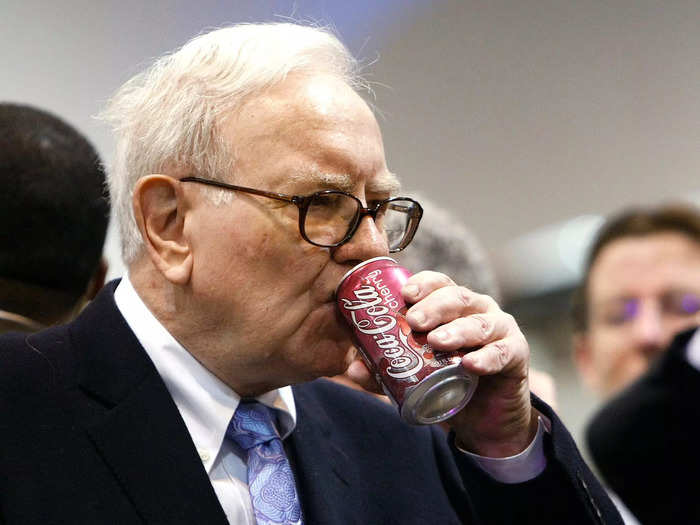
Prediction:
"No sensible observer — not even these companies' most vigorous competitors, assuming they are assessing the matter honestly — questions that Coke and Gillette will dominate their fields worldwide for an investment lifetime," Buffett wrote in his 1996 letter to Berkshire shareholders.
"Indeed, their dominance will probably strengthen. Both companies have significantly expanded their already huge shares of market during the past 10 years, and all signs point to their repeating that performance in the next decade."
Outcome:
Buffett's claims have proved sound so far: Both Coke and Gillette remain the biggest players in their markets, though the latter is under mounting pressure.
Coca-Cola's share of the US soft-drinks market grew from an estimated 41% in 1991 to 46% in 2021, according to The New York Times and Statista.
In contrast, Gillette's market share fell from about 70% in 2010 to 53% in 2018, reflecting fierce competition from startups including the Unilever-owned Dollar Shave Club and Harry's, according to a Euromonitor report cited by CNBC.
8. Death
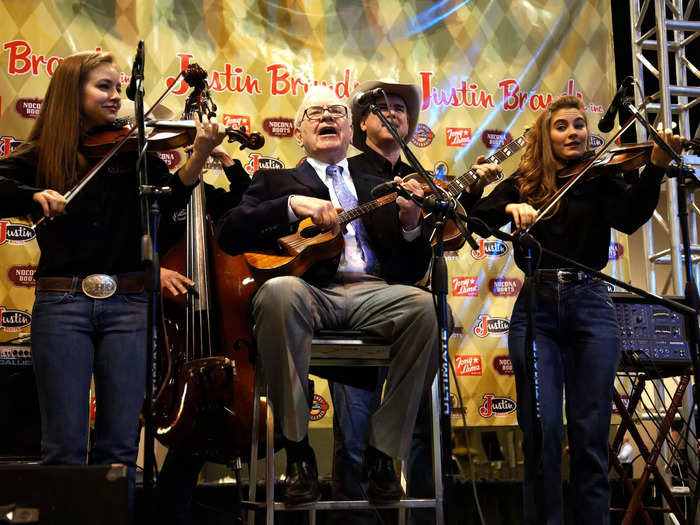
Prediction:
Buffett wrote in his 2006 letter to shareholders that he had an "expected lifespan of about 12 years (though, naturally, I'm aiming for more)."
Outcome:
If Buffett had to pick one forecast to undershoot, he would probably choose this one. More than 15 years after writing the letter, he's now 92 years old and appears to be in good health.
9. Table tennis

Prediction:
Buffett touted Ariel Hsing, a top-rated junior table-tennis player, as a "good bet to win at the Olympics some day" in his 2009 letter to shareholders.
Outcome:
Buffett's endorsement was more a marketing campaign for Hsing's presence at Berkshire Hathaway's next annual meeting than an actual prediction.
Hsing competed in the 2012 London Olympics, losing 4-2 in the round of 32 to the eventual gold medalist, Li Xiaoxia of China. In an interview with Insider in 2021, she shared seven life lessons she's learned from Buffett.
10. Housing

Prediction:
"Housing will come back — you can be sure of that," Buffett told shareholders in his 2011 letter after the US housing bubble burst, fueling the financial crisis.
He added: "We will again build one million or more residential units annually. I believe pundits will be surprised at how far unemployment drops once that happens."
Outcome:
Buffett was right about a recovery in housing and employment during the economic rebound that followed the financial crisis.
Housing starts in the US were tracking at a seasonally adjusted annual rate of about 1.4 million units in November, according to the Commerce Department.
Unemployment has also fallen from 8.9% in 2011 to 3.7% in November, according to the Bureau of Labor Statistics.
11. Index funds
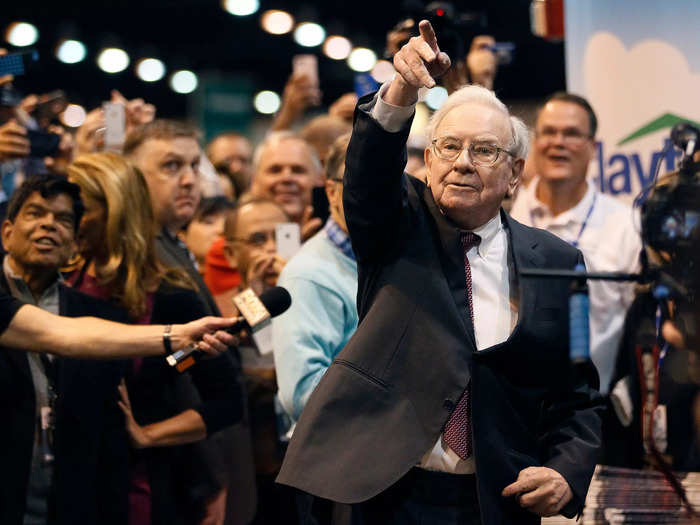
Prediction:
"Over a ten-year period commencing on January 1, 2008, and ending on December 31, 2017, the S&P 500 will outperform a portfolio of funds of hedge funds, when performance is measured on a basis net of fees, costs, and expenses," Buffett predicted.
He posted the above prediction on Long Bets, a website for making long-term wagers and nominating charities to receive the winnings. Ted Seides — a manager of Protégé Partners, an asset manager that invests in multiple hedge funds — agreed to bet that a portfolio of five funds, invested in more than 200 hedge funds, would beat the S&P 500 index.
Outcome:
Buffett has argued for years that index funds offer better returns to investors than professional stock-pickers, as they provide exposure to a broad range of stocks and charge lower fees.
He won the bet. The S&P 500 returned an average of 8.5% from 2008 to 2017, while the average return of the five funds it was up against was less than 3%.
Buffett donated his $2.2 million payout to Girls Incorporated of Omaha.
12. S&P 500
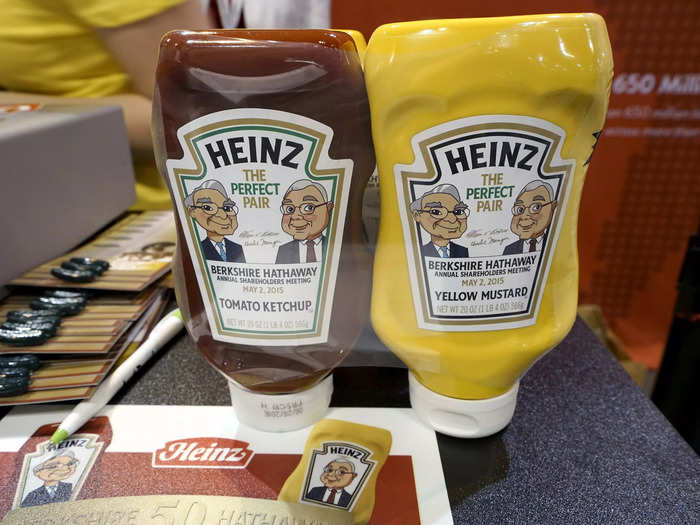
Prediction:
Buffett is notoriously skeptical that the good times will continue. In Berkshire's 1999 letter to shareholders, Buffett and Charlie Munger, his business partner, deemed it a "virtual certainty" that the S&P 500 would "do far less well in the next decade or two than it has done since 1982."
Outcome:
Buffett was right that the S&P's stellar average total return of just over 19% from 1982 to 1999 wouldn't last. The index returned an average of 1.2% over the next decade, and 11.5% from 2010 to 2020, according to SlickCharts.
Popular Right Now
Popular Keywords
Advertisement